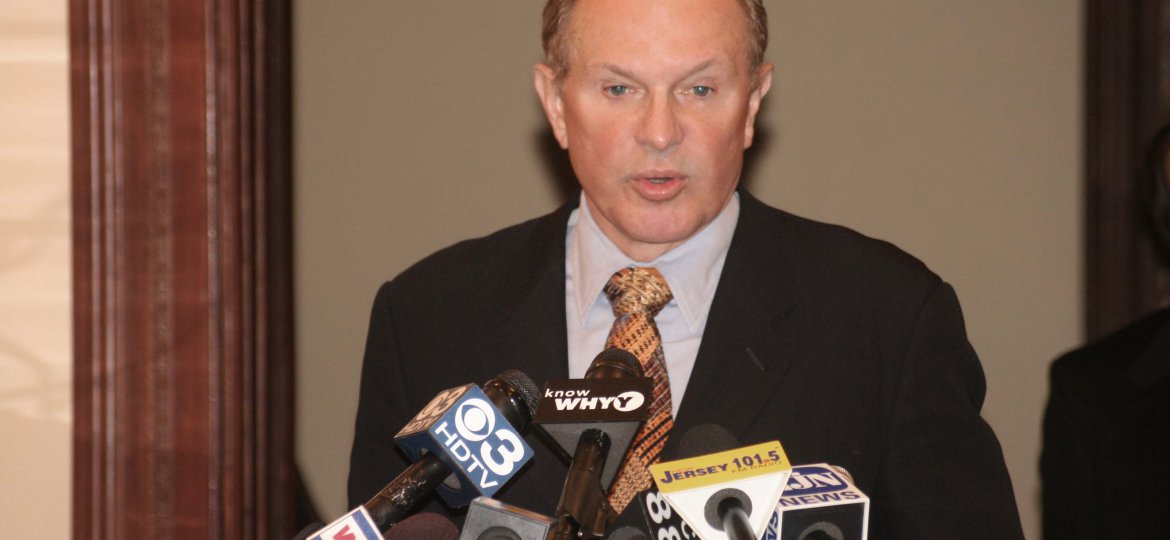
TRENTON – Senator Raymond J. Lesniak, D-Union, released the following statement detailing his efforts to overturn the Professional and Amateur Sports Protection Act of 1992 (PAPSA):
“As Captain Renault said to Rick, ‘I’m shocked, shocked to find that gambling is going on in here!’ Gambling is going on here – sports gambling. According to a 1999 National Gambling Impact Study, $380 billion dollars a year are illegally wagered on sports betting. Profits from these wagers are lining the coffers of offshore internet operations, backroom bookies and organized crime rings. Sports betting in the U.S. is unregulated, untaxed and illegal: except in Nevada and as allowed in Delaware, Montana and Oregon.
“This federal law deprives the State of New Jersey of over $100 million of yearly revenues, as well as depriving our casinos, racetracks and internet operators of over $500 million of gross income. Rather than supporting thousands of jobs, economic activity and tourism, the federal ban supports offshore operators and organized crime.
“Our casinos are suffering, our racetracks are dying and our State budget needs revenues. Today we take the first step to undoing the injustice of the Professional and Amateur Sports Protection Act of 1992, healing our casinos, saving the lives of our racetracks, adding revenues to our State budget, and preserving and creating thousands of jobs.
“Today, a lawsuit has been filed on behalf of the people of the State of New Jersey, the Interactive Media Entertainment & Gaming Association, The New Jersey Thoroughbred Horsemen’s Association, The Thoroughbred Breeders Association of New Jersey and the Standardbred Breeder & Owners Association of New Jersey, in the United States District Court, District of New Jersey, to declare unconstitutional a law passed by the United States Congress and signed into law by the President of the United States of America on October 28, 1992.
“The law, entitled the Professional and Amateur Sports Protection Act of 1992 (PASPA), violates the Commerce Clause of the United States Constitution by not uniformly regulating commerce throughout the United States.
“It also violates the 14th Amendment to the United States Constitution by being unconstitutionally discriminatory against the plaintiffs and the people of the State of New Jersey.
“It also violates the 5th Amendment to the United States Constitution by being unduly overbroad and vague.
“It also violates the 10th Amendment to the United States Constitution by regulating a matter that is reserved to the States.
“It also violates the 11th Amendment to the United States Constitution by empowering private parties – sports organizations – to enforce its provisions over other private parties.
“It also violates the First Amendment to the United States Constitution by having a chilling effect on efforts by Senator Lesniak to sponsor and have enacted legislation to legalize and regulate sports betting in New Jersey and raise revenues for the State treasury.
“And, lastly, it violates Constitutionally protected rights of privacy of the Interactive Media Entertainment & Gaming Association.
“PASPA represents a substantial intrusion into States’ rights and restricts the fundamental right of States to raise revenue to fund critical State programs. Moreover, it blatantly discriminates between the States. Finally, particularly with respect to State-sponsored sports pool lotteries, the law cannot be justified on the merits and creates a virtual monopoly for organized crime over a multi-billion dollar industry. Those are not my words. They were spoken in 1992 by United States Senator Charles Grassley in opposition to the PASPA legislation.
“PASPA is a substantial intrusion into States’ rights, giving Congress the power, which has typically been left to the States, to determine how states raise revenues; and is particularly troubling in that it permits enforcement by sports leagues. Those are not my words. They were the opinion expressed by the U.S. Department of Justice in a letter to then Senate Judiciary Chairman Joe Biden dated September 24, 1991.”
To read a copy of Senator Lesniak’s complaint, click here. To read a report from Las Vegas Sports Consultants estimating the sports betting market for New Jersey, click here. To read the remarks of US Senator Charles Grassley in opposition to PAPSA, click here. And to read a Gambling911 article on the impact of the global economic downturn on sports betting, click here.
If you need additional comment, George Washington University Law Professor Thomas B. Colby, author of a Virginia Law Review article that outlines the unconstitutionality of the Professional and Amateur Sports Protection Act of 1992 (PAPSA) and is an expert on the issue, is available for comment, and can be reached at (202) 994-0176, or via e-mail at tcolby@law.gwu.edu.

